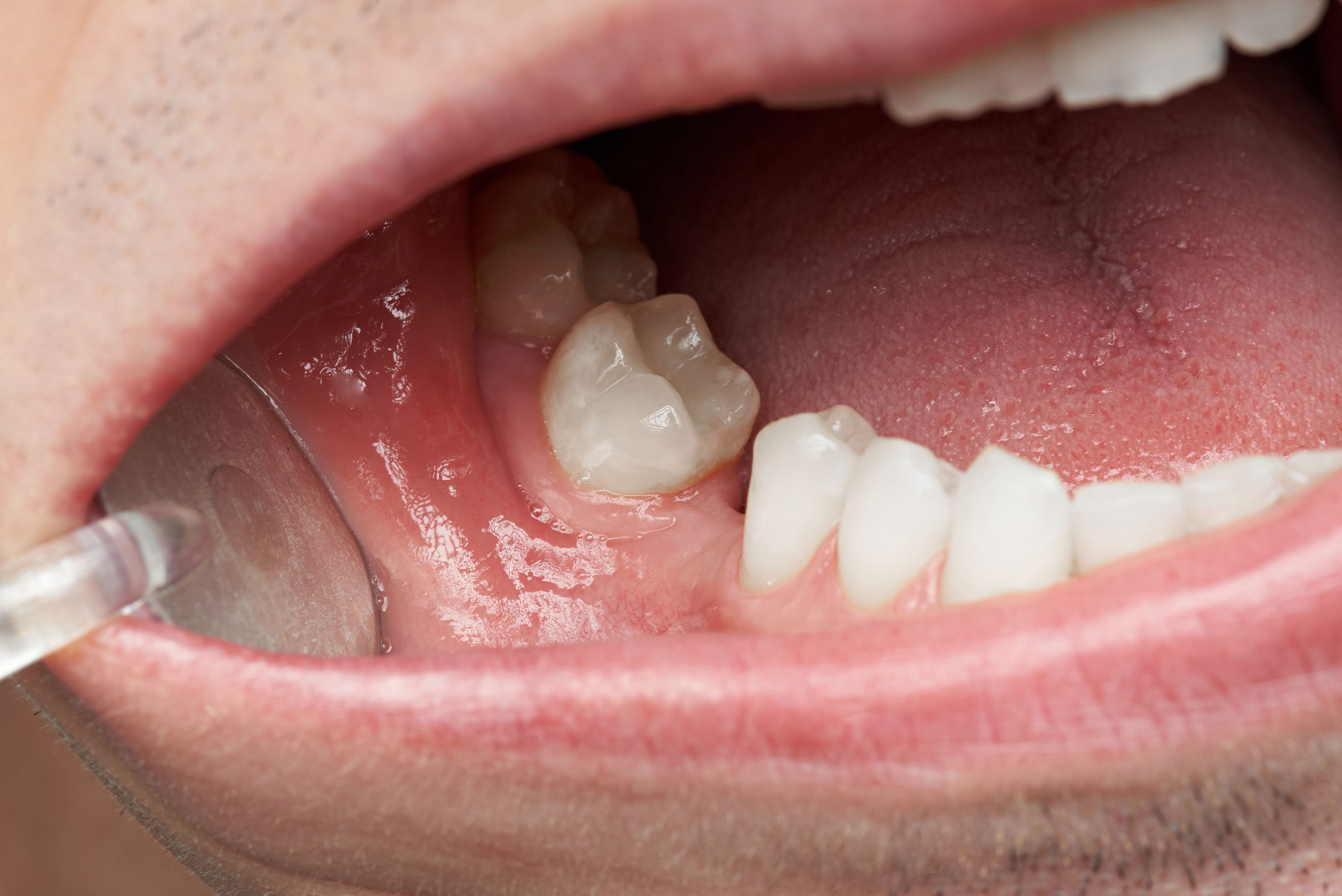TMJ Disorder Caused by Missing Teeth
 A TMJ disorder refers to wear, tear, and other factors that cause problems with the alignment and proper function of the jaw joint. When this happens, the jaw does not move smoothly or normally as it once did. The National Institute of Dental and Craniofacial Research (NIDCR) notes that more than 10 million Americans suffer from TMJ disorders. Dr. Bruce Wilderman offers different TMJ disorder treatment options at his practice serving the Doylestown and Philadelphia, PA area.
A TMJ disorder refers to wear, tear, and other factors that cause problems with the alignment and proper function of the jaw joint. When this happens, the jaw does not move smoothly or normally as it once did. The National Institute of Dental and Craniofacial Research (NIDCR) notes that more than 10 million Americans suffer from TMJ disorders. Dr. Bruce Wilderman offers different TMJ disorder treatment options at his practice serving the Doylestown and Philadelphia, PA area.
Determining the right treatment option typically involves noting the cause of the TMJ disorder. While you may not realize it, tooth loss can contribute to the development of a TMJ disorder. The Artistic Expressions Dentistry team would like to go over these matters below, starting with the most common signs of the condition.
Symptoms of TMJ Disorders
Some common signs and symptoms of a TMJ disorder include:
- Clicking in the jaw
- Popping in the jaw
- Crunching or grinding sensations as the jaw moves
- Reduced ability to open your mouth wide
- Lockjaw
- Jaw pain
- Earaches and headaches
How Missing Teeth and TMJ Disorders Are Linked
When you are missing a tooth or multiple teeth, it can throw off the balance of your bite. One side of your mouth may have to do extra work to bite and chew certain kinds of food. This added strain on part of the jaw can lead to wear and tear over time. This could contribute to a TMJ disorder.
In addition, we notice many patients who visit our Philadelphia practice suffer from teeth grinding (bruxism). This gnashing, clenching, and shifting of the teeth at night is caused by stress as well as the mouth’s inability to find a comfortable resting position. Since tooth loss can throw off dental alignment, it can be a potential cause of teeth grinding. This stress on the jaw at night can result in a TMJ disorder.
Treatment Options for Missing Teeth
There are different ways to address a TMJ disorder caused by missing teeth. The first step usually involved replacing the missing tooth or teeth to restore balance to the patient’s bite. This can be achieved through the use of a dental bridge, a partial denture, a full denture, or the use of dental implants. With a false tooth or teeth in place, the pressure on the jaw and jaw joint can be evenly distributed, causing less damage to the joint in the long run.
Treatments for TMJ Disorders
When it comes to address the TMJ disorder itself, a dentist can address teeth grinding as well as problems with the condition of the joint. That typically means the following:
- Night Guard During Sleep - Also known as a bite guard, a night guard is a custom retainer worn during sleep. This retainer prevents direct contact between the upper and lower teeth. This prevents tooth damage and reduces jaw strain caused by teeth grinding.
- Treatments for the Jaw Joint - Various surgical and non-surgical treatments can be performed to address the damage to the jaw joint and its surrounding structures. These improve joint movement and overall function while reducing pain.
Developing a Custom Dental Treatment Plan
Since each patient is different, we will need to carefully customize your TMJ disorder treatment to your needs. During a consultation at our Philadelphia practice, we can go over these matters in greater detail. To schedule a visit, contact our cosmetic and restorative dentistry center. Dr. Wilderman and his team can be reached at (215) 340-1199.


